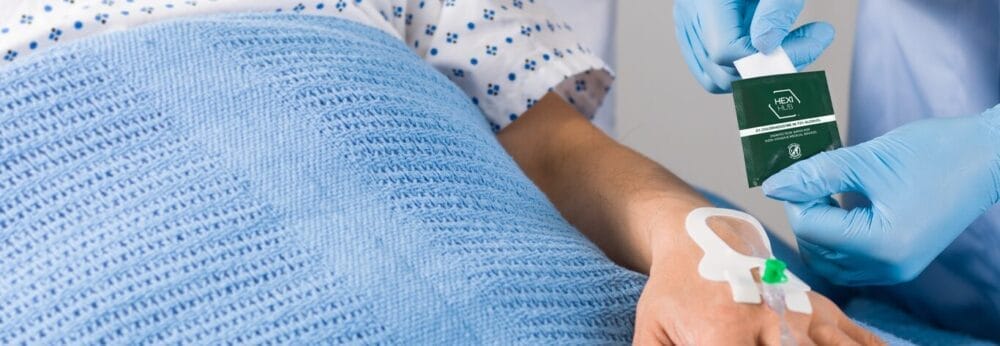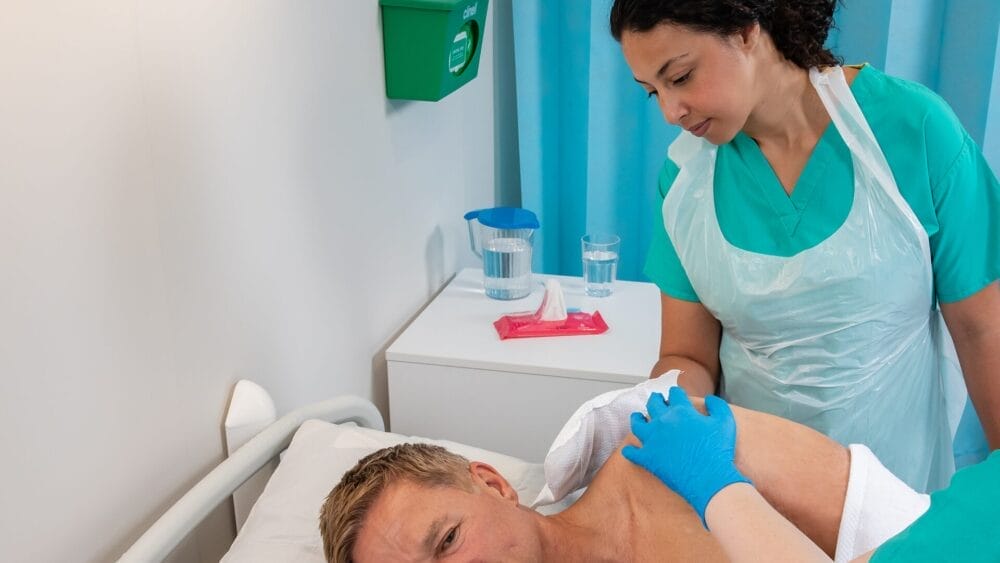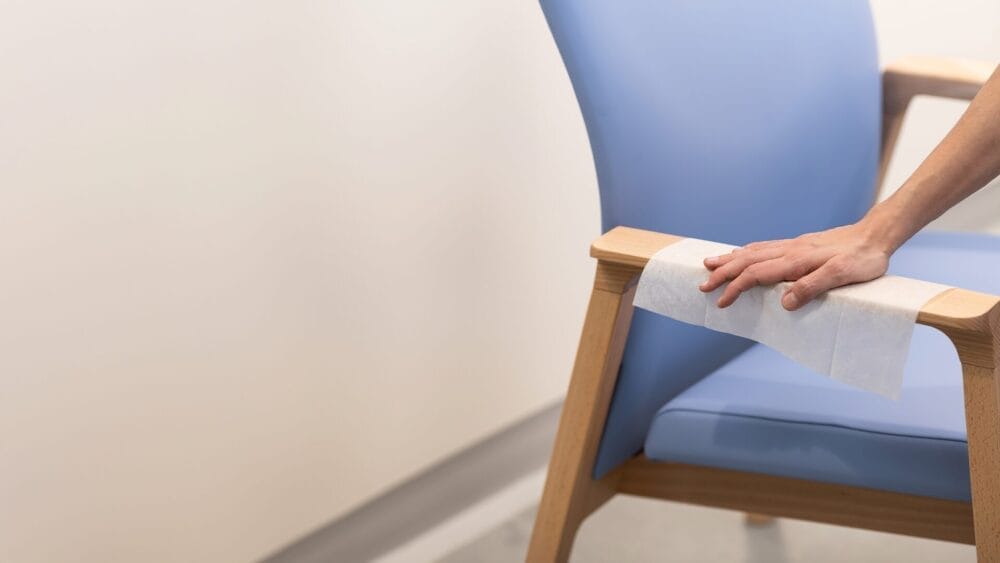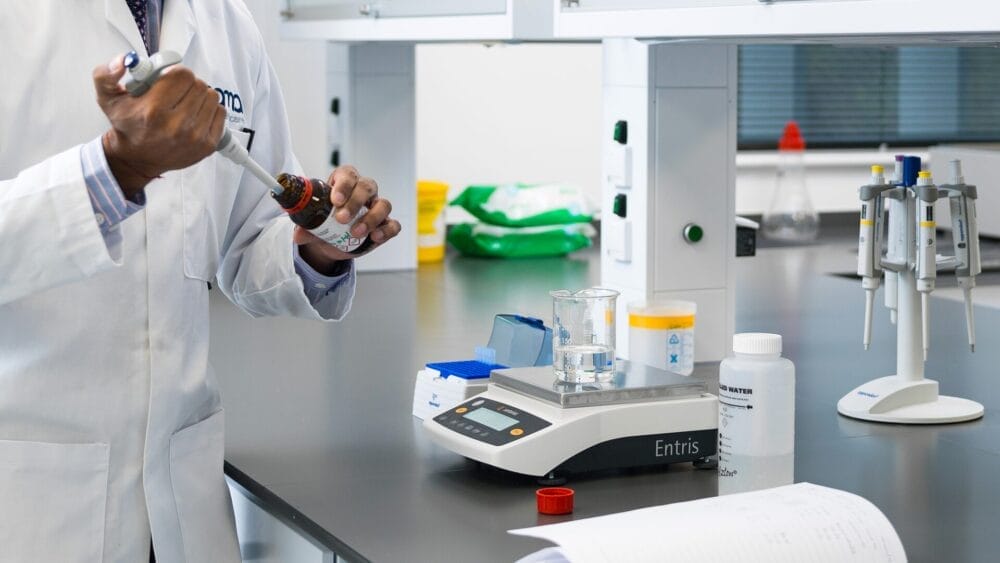Posted
17th June 2022
Research
With the World Health Organisation looking to rename monkeypox virus next week, GAMA’s Clinical & Scientific Director shares an update on what we know about the virus so far.
What’s the latest epidemiology of the outbreak?
The UK Health Security Agency (UKHSA) has recently published an epidemiological summary of the monkeypox outbreak in the UK. The latest available update from 15th June stated there are currently 504 confirmed cases in England, 13 in Scotland, 2 in Northern Ireland and 5 in Wales. Globally, there have been something in the region of 1500 cases from 28 countries, according to the WHO.
Related article: Can Clinell products kill monkeypox virus?
Will the name of monkeypox change?
As the virus continues to spread among people across the globe, the WHO have recently announced that it will rename monkeypox to avoid discrimination and stigmatisation. WHO’s director general, Dr Tedros Adhanom Ghebreyesus said WHO was working with partners and experts on changing the name of the monkeypox virus, its clades and the disease it causes. The WHO announced there will be an emergency meeting next week to advise on whether the current outbreak constitutes a public health emergency of international concern (PHEIC).
What is monkeypox and how does it spread?
Monkeypox is a viral zoonotic disease, meaning that it can spread from animals to humans (hence the name)! It causes a rash that follows a particular pattern, which develops shortly after individuals develop flu-like symptoms. The number and type of lesions in the rash can range from a few to thousands. The disease is rarely fatal.
Prolonged close, usually direct skin to skin contact, seems to be the most important exposure for transmission during this outbreak. It could be argued that the virus may spread by air, however there is currently a lack of evidence to support this claim. Clothing, bedding, towels, and objects can also be involved in spreading monkeypox.
Who is at risk of developing monkeypox?
In the UK, the vast majority of cases have been amongst men, with the greatest proportion in London. The majority of men affected identify as gay, bisexual, and other men who have sex with men (GBMSM). Unlike previous cases of monkeypox in the UK, overseas travel is not an important risk factor in the current outbreak. One of the concerns with a viral outbreak is that widespread infection in the population may occur. With monkeypox, this is very unlikely. Whilst the virus remains classified as a “high consequence infectious disease”, it is not hugely transmissible. It’s important to note that treatment options are available for monkeypox and that vaccinations are effective. Previous data from Africa suggests that previous vaccines against smallpox may be up to 85% effective in preventing monkeypox infection. Antiviral medications (Cidofovir and Brincidofovir) are also effective in treating human cases of monkeypox.
How do you stop monkeypox spreading?
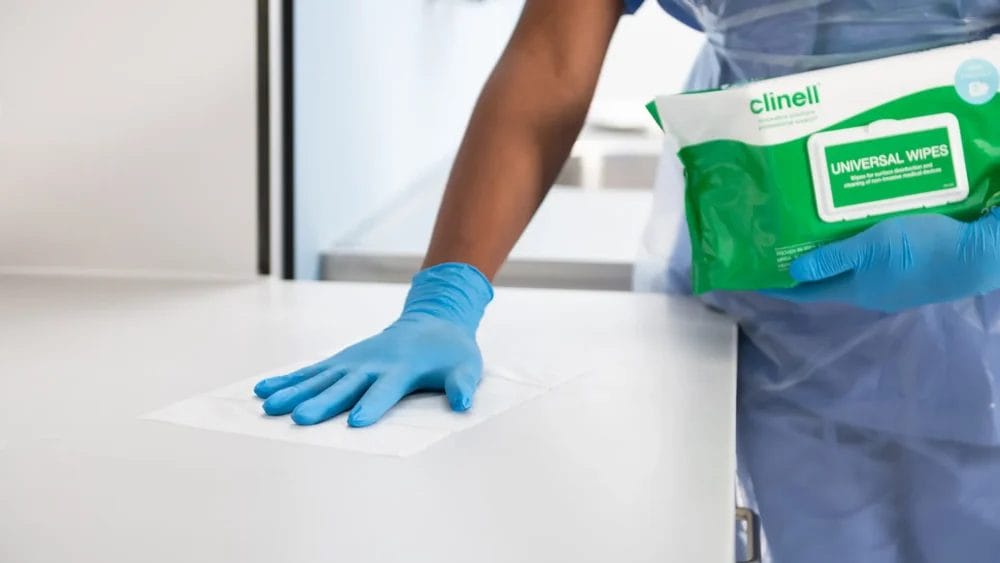
The most important measures to prevent the spread of monkeypox are to:
- Avoid close contact with confirmed and suspected cases.
- Keep lesions covered.
- Wear the right level of personal protective equipment when coming into contact with suspected or confirmed cases.
- Make sure that waste is handled and disposed of carefully.
- Launder soft furnishings appropriately.
- Incorporate surface disinfection (Clinell Green Universal wipes are active against monkeypox).
If you’d like more information on Clinell Universal product efficacy against monkeypox, send an enquiry via our contact us page. Help raise awareness of monkeypox virus by sharing this article on social media.
SHARE THIS ARTICLE
Tags
Latest News
Introducing HEXI HUB: A seamless transition in our product line
We’re pleased to announce an update to our product offering…
Innovative solutions for tackling Carbapenemase-producing Enterobacteriaceae (CPE) at King’s College Hospitals
King’s College Hospital NHS Foundation Trust, one of London’s largest…
Gloves Off: reducing unnecessary plastic waste during environmental cleaning and disinfection
In this blog, Dr Phil Norville discusses the momentum-gaining ‘Gloves…
Gloves Off: Navigating SDS sheets and skin safety claims in environmental decontamination products
In this blog, James Clarke (Head of R&D, Science &…

